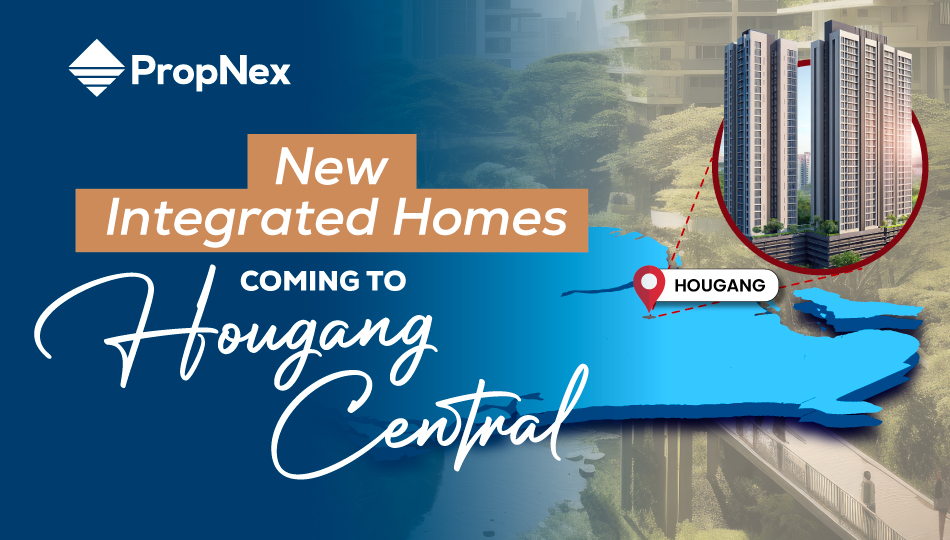The Pros and Cons of Investing in Commercial Properties
.jpg)
With the introduction of more cooling measures targeted at the residential property market in December 2021, some investors may be thinking about shifting their attention to commercial properties which are not subjected to the additional buyer’s stamp duty (ABSD).
A quick recap – the government has, with effect from 16 December 2021, imposed several fresh property curbs to prevent overheating in the housing market. These included hiking the ABSD rates for foreigners buying homes in Singapore as well as investors purchasing their second and subsequent residential properties here. The increase in ABSD rates is expected to cool investment demand and help to stabilise the property market.
Before diving headlong into commercial property investment, investors should know that investing in commercial properties is a different ball game and it presents several risks that are more closely related to commercial real estate.
Here’s a list of pros and cons of investing in commercial properties, which include strata office space, strata industrial space, retail shops and shophouses.
Pros:
- May not face as much policy risks compared to the housing sector: Commercial properties are not affected by the ABSD, and only industrial properties are subjected to seller’s stamp duty. The commercial real estate sector is less likely to attract government intervention to influence the market dynamics - unlike in the residential market where the government is committed to making sure it remains sustainable and meet the population’s housing needs.
- Differences in financing: Purchasers of commercial properties who are buying under company/investment vehicle will not be subjected to the total debt servicing ratio (TDSR). However, TDSR still applies if the buyer is purchasing the property as an individual. For commercial property loans, financial institutions can offer a loan-to-value limit of 80%, as opposed to 75% for residential loans*. (*the first home loan for the borrower)
- Limited supply of new strata retail/industrial/office space and lack of new supply of shophouses could support pricing and secure a better upside in capital appreciation potential in the future.
- Stable income stream: Commercial tenants usually sign a longer lease - e.g. 2 years or 3+3 years or some even longer – ensuring a steady income stream from the commercial property. On the other hand, residential tenants tend to seek shorter leases of 1 year, meaning that there is a need to look for new tenants or negotiate lease renewal more regularly
Cons:
- Larger price tag: Prices of some commercial properties may be higher than an average apartment - particularly in the shophouse segment. Hence, commercial properties may not be suitable for retail investors who are working with a tighter budget of under $2 million, for instance. The median transacted price for shophouses in 2021 was $5.5 million – probably well above the budget of many retail investors.
- Substantial cash outlay: Buyers cannot use CPF funds to finance the purchase of commercial properties unlike residential properties.
- Downside risks: Prices and rents of commercial properties are closely tied to economic factors and may be more susceptible to cyclical factors such as economic downturn, uncertain industry outlook, and other global events/geopolitical risks, which may not hit the residential sector as hard. To this end, rental returns from commercial properties may be more volatile and uncertain.
- Pandemic-related risks: New waves of infection could prompt the tightening of restrictions such as default work-from-home, reduced gatherings and limitations on dining-in. These measures will impact the commercial property sector more severely. Also, in 2020 amid the COVID-19 pandemic, commercial property landlords were required to offer rental relief to tenants while residential property landlords were not required to do the same.
- Dependent on tenant’s success: The rental performance of commercial properties will depend on the success of the tenant/ business operator. Investors looking at buying into commercial real estate should engage an experienced salesperson to source for a suitable tenant and provide insight into the industries that may be attracted to the property.
- More boxes to tick for location: Locational attributes are critical for commercial properties, especially those leased by services sector businesses - i.e. retail and shophouse properties which house retail or food & beverage (F&B) tenants - that will need high visibility, high footfall traffic, and sizable population/workforce catchment nearby to support their business.
- Difficulty in finding a tenant: Landlords may have more difficulty looking for quality tenants for commercial properties compared to residential tenants due to a smaller pool of suitable candidates for the space – as businesses tend to be highly selective about location. Therefore, some investors may opt to purchase commercial space that are already tenanted rather than a vacant unit.
- Asset enhancement and maintenance: Commercial property landlords will need to do more regular maintenance of the premises and every once in a while, undertake asset enhancement works to ensure the space continues to meet the tenant’s needs. The costs for such works tend to be heftier compared to that of residential properties.
The above points are just some of the key considerations that prospective investors will need to thoroughly assess if they wish to invest in commercial properties. More importantly, investors should note that commercial properties may be more severely affected by economic changes and uncertainties compared to residential properties.
As many factors come into play when investing in commercial properties, retail investors could be better off engaging a reliable and experienced commercial real estate salesperson to guide and advise them on the opportunities as well as flag any potential pitfalls.












